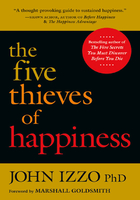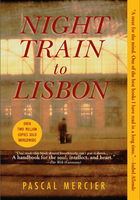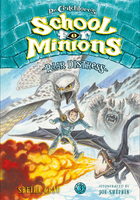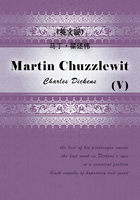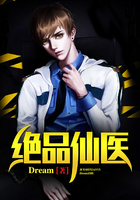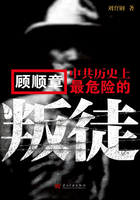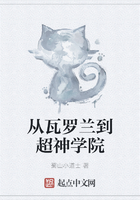Corrado Prizzi's granddaughter was being married before the baroque altar of Santa Grazia di Traghetto, the lucky church of the Prizzi family. The bride shimmered in the exalting sounds of the choir and the chanting bishop. The groom, shorter but more intense than the bride, was her cousin, Patsy Garrone, a member of the inner Prizzi family.
The church was dressed with sensual shafts of light and the fur of holy music. Don Corrado Prizzi, eighty-four, sat on the aisle in the front pew, right side of the church. He was asleep, but even in repose his face was as subtly distorted and burnished as that of a giant crown of thorns starfish predator. Every few moments both small, sharp eyes, as merry as ice cubes, would open, make a reading, then close again.
Beside Don Corrado sat his eldest son, Vincent, father of the bride, a cubically heavy man. He clutched his kneecaps with both hands, frowning and humming, very softly, "The Stars and Stripes Forever." Beside Vincent was his brother, Eduardo, and his third "natural" wife, Baby. Eduardo called his wives Baby, not to sound colloquially American, as he had once explained to his mother, but because Cristoforo Colombo had named his first ship of discovery the Ni?a which means Baby. "They are all little women," his mother had said. "How come you don't call them Pinta?" One thing was for sure, the family wisdom went, no one would ever call any of them Santa Maria. Eduardo wore the only elegance of the family: silver hair in high, teased waves, tailoring by Cifonelli (Roma), and money by Gucci.
Directly behind Don Corrado sat Angelo Partanna, his oldest friend and the family's counselor. He was a tall, scrawny, bald and relentlessly dapper man in his early seventies.
Behind the first two rows on the right side of the church, captured like pheromones in the thickening smell of hundreds of burning beeswax candles, in serried ranks, row upon row, were lesser Prizzis, one more Partanna, and many, many Sesteros and Garrones. Heavily larded among them were relatives from most of the principal families of the fratellanza in the United States. Sal Prizzi had married Virgie Licamarito, sister of Augie "Angles" Licamarito, Boss of the Detroit family. Two of the Garrone daughters had married the sons of Gennaro Fustino, head of the New Orleans family that controlled the entire southern rim of the United States. Don Corrado's niece, Caterina, was married to the son of Religio Carramazza, head of the Chicago family, and Don Corrado was second cousin to Sam Benefice, head of the New England family, and Carlo "Gastank" Viggone, Boss of the Cleveland combination.
Together, all sides of the fratellanza enterprises formed a loose conglomerate that was only able to operate as long as it could neutralize law enforcement on the one hand while sustaining cordial, continuing relations with its customer-victims on the other. The Prizzi family business depended entirely, in a way that no other business organization needed to, on strong relationships with the noncriminal sections of society. These relationships were kept in profitable repair by both sides. It would be a mistake to think of the Prizzi family as being "different" from "legitimate" society—continuing profits and mutual conveniences were established and encouraged by both sides. The Prizzis weren't "wrong-side" players making deals with strictly differentiated "right-side" players. Both sides had in fact evolved together in the long night of the money-tilted culture, helped each other, and were, combined, the most important part of the political and economic system of the society.
On the left side of the church, seated expressionlessly in the last half of the pews, were the working troops of the Prizzis and their capiregimes, an honor guard of about seven hundred men, a third of the available soldati. In front of them were the bag men from the chief inspector's squad, the borough squads, and the PC's squad of the New York Police Department, all in plain clothes. Alongside them sat the chief operating officer of one of the multinational conglomerates, the Papal Nuncio, the national union leaders, and the superstars of screen, opera, theater, TV, and the great world of sports. The groom's best man was the current light-heavyweight champion of the world. The bride's maid of honor was the reigning Miss America, who she had met that morning. In the first three pews, senators and congressmen sat side by side with high police officials, network anchormen, and the best and the brightest minds of the media, the district attorney's office, the attorney general's office, and the White House staff.
In the church choir lofts network TV cameras had been installed side by side with the Prizzis' own cassette taping units. Radio coverage was dense from this vantage point and the hum of their steady reportage joined the glorious song of the choir, the chanting of the bishop, the responses of the altar boys, and the clicking of plain, old-fashioned news cameras. A granddaughter of Corrado Prizzi was being married.
Charley Partanna sat in the eleventh row, right side, next to his cousin, movie executive Paulie Sestero. Charley was a large, lithe man of forty-two who resembled the late Phar Lap, with strong facial bones and a jutting chin, chrome eyes and brows like awnings. He had been a "made man" in the honored society since he was seventeen, the age at which his father had been made before him.
Charley Partanna was Angelo's son, Vincent's sottocapo, and the Prizzis' enforcer. When he was thirteen he had made his bones on Gun Hill Road in the Bronx, where he had never been before that afternoon. His father had been unable to figure out any other way to ice Little Phil Terrone, the heaviest shit and boo dealer in the north Bronx, who always seemed to be at the center of a crowd of people. Charley was a kid in short pants. There were a lot of other kids, maybe thirty of them, milling around to get some of the silver money Terrone always threw around on them, and Charley just stepped out from behind a car and blew Terrone's head off. Then he dropped the gun and lost himself in the mob of other kids.
Charley was solid. Nothing shook him up. He made his plan then he walked through it deliberately, missing nothing. One time the police staked out an apartment. They had searchlights and bullhorns and snipers on roofs and in windows, the whole movie drill, to get at a hoodlum named Dimples Tancredi, who not only worked for the Prizzis but had killed two cops. Tancredi got a message out to the Prizzis saying that he was sorry but that he was going to have to make a deal to blow the entire Prizzi shit business on the East Coast to buy himself some time instead of being knocked off by the brooding cops. At least enough time so that his lawyer could get some things settled and the crazy cops cooled down. Don Corrado was stunned by Tancredi's intentions. He talked it over with Angelo Partanna and Pop said, "Why, my Charley will go in there and blast holes in that little prick." Charley was twenty. It was his fourth hit.
Eduardo Prizzi made a deal for a sit-down meet with the Brooklyn police brass and reassurances were passed around until everybody understood that all anybody wanted was for this fucking cop-killer to be dead while the Department got the media credit for it but wouldn't have to risk any more cops' lives.
Temporarily, the cops gave Charley a different name. In the newspapers the next day he became, without any pictures, First-Grade Detective George Fearons, complete with a police heavy rifle. He went up in the service elevator to the back door of the apartment Tancredi was trapped in and got him to move close enough to the door so that Tancredi could hear him explain the deal that the Prizzis wanted to make for him. That didn't get the door open, but it got Tancredi close enough so he could hear the proposition and Charley burned him through the door. Then he went down in the service elevator, handed in the riot gun, and told the cops how things were upstairs; four of them went up to the apartment, kicked down the front and back door for friendly TV crews, and blew eleven holes in Tancredi's dying body.
***
"There are even people here from Agrigento, Charley," Paulie said. He was a very short man when he was standing, but massively tall when he was sitting down. "See that turtle-faced guy over there? Four rows up? That's Pietro Spina. Now we are talking real old-country fratellanza."
"Never mind that," Charley said, "who is the great-looking head across the aisle, two rows up?"
They stared at the woman. "Great-looking?" Paulie said. She was okay. He would rate her about a 7.
"Jesus, Paulie, she's gorgeous!" Charley stared fixedly at the woman. She was handsome from some angles, but to Charley she was a classic, like the Truman win over Dewey. She was dark and she sat as reposefully as a swan.
"The name I don't know," Paulie said, "but she's gotta be a big friend of the family or else heavy media."
"If she's a friend of the family she's on the wrong side of the church."
The choir ran down for a few beats and Charley became aware of the sound of the taping cameras. Four camera set-ups! he marveled. Paulie had told him that the whole wedding was going to be made into a one-hour feature with music, titles, and special effects by Scott Miller; with Toni Muto, who had three records in the top fifty, singing "It Had to Be You" in the Sicilian dialect of her choice. The movie was going to be put on videocassettes and everybody at the wedding was going to get one so they could enjoy it in the years to come.
"Listen, Paulie," Charley said, "I want something."
"What?"
"As soon as the mass is over I want you to tell the head guy on the cameras to shoot stuff on that girl for me."
"Why not? You want it, you got it. Here," he took a card out of his side pocket and scribbled on it. "Give him this. He'll get whatever you say."
Amalia Sestero, in the row ahead of them, turned around and smiled. "Hey, Paulie," she said.
"Yeah?"
"Shut up and watch the wedding."
***
While the crowd was working its way out of the church, Charley moved fast and grabbed the head camera guy. He put a hundred-dollar bill in the man's hand, figuring it would work better than Paulie's card. "I am only trying to help the movie," he said. "See that girl over there? The beauty in the green-and-yellow dress?"
The man looked. "The beauty?"
"With the little white gloves! The one moving out into the aisle?"
"Oh, that one. Yeah."
"Shoot as much as you can get on her when we get over to the hotel, you understand? Save everything you get for me, you understand?" Charley had a harsh, metallic voice, metallic in the way heavy truck gears sound when they are covered with sand. It made a punishing sound even when he was singing Christmas carols. His voice, his size, and his ball-bearing eyes almost made up the cameraman's mind, but he was confused so he hesitated.
"Look, friend, I'd like to do it, but—"
"You want to eat this card?"
Charley put Paulie's card in the man's hand. The man nodded vigorously., "Certainly," he said. "My pleasure. She will flash up the footage."
"You ain't kidding," Charley said.
***
The decorators had turned the ballroom of the hotel into a replica of the old Palermo Gardens. Everybody from the old neighborhood who came into that room was kicked in the head by what they saw because what they thought they were seeing was their youth. It was such a terrific effect that three old ladies were laughing and crying at the same time.
"Hey, fahcrissake, look at this!" the head of the Bocca family yelled. "How about what these here people done here?"
Above the heads of the entering crowd the whole ceiling was festooned with crepe-paper ribbons: red, white, and blue from one side of the room to the central chandelier, and red, white, and green from the chandelier to the other side. Balloons jostled each other against the ceiling, bobbing with the rising warm air. Everybody felt good. What had been a solemn wedding turned into a party. People suddenly liked each other. Some people hugged. There was so much love in the room that Charley's heart filled with the foam of it, like a stein of beer pumped too fast.
Two long tables stretched down either side of the hall, holding up mountains of sandwiches. Dozens of steins of beer were being filled by Jewish waiters from the Prizzi chain of delicatessens around the city, which Ed Prizzi had put the family into because no matter where he was he couldn't seem to get a good (dry method) piece of corned beef. That had led the Prizzis into bakeries, which soon went national because nobody could get rye bread that had any crust, and before anyone knew it, the Palermo Maven delicatessens had gone national on a franchise basis, including the Jewish waiters.
A mass of Sicilian-speaking waiters were filling pitchers of elderberry wine from a large barrel. There were nine kinds of salad on the tables, mountains of farfalline, mounds of cold meat and piles of salsiccia and banks of pastries set among fourteen kinds of Sicilian candies and ice creams. Jesus, Charley marveled, even the orchestra was right—a piano, an accordion, a clarinet, and a bass playing a rock arrangement of Giovanezza. Above the stage, behind the band, were big eight-by-ten-foot sepia photographs of Arturo Toscanini, Pope Pius XII, Enrico Caruso, and Richard M. Nixon in heavy gilt frames.
A lot of the older men were dressed right, in tuxes, and the older women all wore the correct color for a wedding, black, but the young people and the civilians were schlocked out like ziticones. Charley wore a tuxedo. It was three o'clock on a summer afternoon but it was a Prizzi wedding and people should know how to pay respect.
One thing was right. Don Corrado's eighty-three-year-old sister sat at the door weeping happily in a black dress. As the guests came in they dropped either sealed envelopes or cash for the bride into the black drawstring bag she held between her feet. It looked like a sixty-dollar score. People in the environment liked to think of a thousand dollars as one dollar to confuse the tourists at Vegas, but the measurement became universal because so much money was lying around in heaps, pleading to be taken. Sixty dollars was sixty thousand dollars.
Charley had hustled a ride over from the church in a police car so he could be sure to get there first. He gave the sergeant who set it up a credit slip for six veal steaks packed in ice by the Prizzi meat company. When he got inside the ballroom he planted himself just inside the door and waited for her to come in.
She got there after about twenty minutes, probably she had stopped off in the john. He watched her drop her envelope, then he saw that she was with Maerose Prizzi, the bride's sister. He worked himself ahead of them in the crowd and positioned himself so that they couldn't get around him. What a face! She didn't look exactly Italian but she was beautiful. She had a mouth on her like a bunch of poppies and skin like he had never seen. He managed to stand as if he had been shoved in their way by the press of people near the door.
Maerose was a great woman even if she had screwed up. She was a very wop looker, all eyes and beautiful bones among the grabbing domes and dunes. She was almost as tall as Charley, with sad eyes and long fingers. She was a woman who had done everything right—except once.
"Hey, Charley!" she called out. "This is great. Meet my friend, Irene Walker. This is Charley Partanna."
She waited for him to speak. She was going to take her lead from him, which was very smart, he thought. How could a woman have such a face and (probably) such a body and also turn out to be this smart? He thought he could see her eyes change when she looked at him. To Charley she had something like the look which had come over Pizarro when he had first spotted the Peruvian gold. It was an expression of some kind of historic discovery.
Jesus, Charley thought, I never saw anything like this woman.
Maerose darted away into the crowd.
"How about a drink?" Charley said.
"Maybe a glass of wine to the bride and groom," she said. She had a voice like a jar of smoke! It just drifted out of her and, to Charley, it was visible. It had a color like Florentine gold, with a pink under-painting of the smoke out of a Roman candle on the Fourth of July. He was gonged by her eyes. Jesus! She had healthy eyes. They had fringes like on the lampshades his mother was always making when he was a kid. The white part was bright white and it pushed out the brownness of the rest like flowers coming off a pond. The brown was like maple syrup, then inside that, swimming around among tiny tangerine peels, were little goldfish, and they were changing his life. What would happen when he was able to break away from the eyes and look at the rest of her? He was dropped by this woman.
"Can I take you home? I mean—when you're ready."
She stopped a waiter who was carrying a tray loaded with glasses of champagne. Charley lifted two glasses off the tray. "I live in LA," she said.
"I meant to my home," Charley said.
Vincent Prizzi began to talk into the microphone on the stage. He was a cement-faced man with crinkly-gray hair, and he still had some of the old-country accent. He was so stolidly built that he seemed like the morganatic husband of Mother Earth, like the patron of rocks, television, and fallen cake. He introduced Don Corrado Prizzi to the guests. Charley stood at attention. He hadn't as much as seen Don Corrado for two years. A hush fell over the awe-whacked ballroom; not even the Jewish waiters made any noise in all the time it took the ancient, enfeebled body to shuffle across the platform to the microphone, an essence of violent death and corruption so vibrant that the assembly seemed to sigh with gratitude that this sine qua non was the prisoner of such withered flesh.
Of all the leaders of the fratellanza, Corrado Prizzi alone had steadily risen in strength and prestige, because he had never deviated from the code of omertà. In turn, it had preserved and protected him. He was the only one who attended both the Cleveland meeting in 1928 and the Apalachin meeting more than a quarter of a century later in 1957. Of all of those arrested at the Cleveland meeting in 1928, he was the only one whose photograph was no longer in the police files. For over sixty years his renown and power in the fratellanza had steadily increased while his power in the government of the United States had geometrically squared itself. He was the sole United States "friend" who had enjoyed a personal relationship with the late Don Calo Vizzini, who was so close as to be actually within the family of the present Capo di tutti Capi of Sicily, Don Pietro Spina, whose son had attended the wedding today.
Don Corrado tapped on his son's arm and motioned for him to bring his head down. Vincent bent over, nodding as he listened, then he turned back to the microphone.
"My father welcomes you to this great family occasion," he translated. "He says you are all going to have a good time. He offers his toast of love to the happiness of the bride and groom and wishes them many children."
Vincent lifted his glass. The eight hundred guests lifted their glasses. Everyone drank. The old man shuffled slowly off the stage and disappeared behind the piano into the curtain, one man clearing his way, another following him.
The music began again. It was "You, You're Driving Me Crazy," a great natural Peabody, the dance people were doing the last time Charley had ventured out on the floor with a woman. "Hey, how about a dance?" Charley said.
Maerose Prizzi grabbed Irene just as Charley was turning her toward the dance floor. "Phone call, Irene," she said.
"Phone call?" Charley said blankly, but Irene was moving away with Maerose and they got lost in the crowd. He stood where he was, wondering if she would come back, thinking he wouldn't be able to handle it if she didn't come back. Numbly, he began to make plans to keep his mind filled. As soon as the bride and groom got away, he would take Irene across the street to the cement park. They would sit on a bench and when they got tired of sitting they would walk around the block, then they would sit on the bench again and decide where they would go for dinner.
After twenty minutes of waiting he went looking for her. He couldn't find her. He saw Maerose dancing with Al Melvini and he moved around the dance floor in the direction in which they were dancing, waiting until the music stopped. He didn't want to cut in because Irene might come back and he didn't want her to think he was interested in any other woman. When Maerose came off the floor he stopped her. "Where's Irene?" he said.
"Irene?"
"You dragged her away to the telephone."
"Baby, how should I know?"
***
He was the last wedding guest to leave. He stood at the door, staring into people's faces, not having any idea of what he could say to her if she did come walking past with some guy. Well, he would talk to her. He had a right to talk to her and if the guy made any objections he would break all his fingers. But what if she didn't want to talk to him? What if she just gave him a wave and kept moving on or if he tried to stop her and she just froze him with a look?
When everybody had gone he gave the ladies' room pro five bucks to go in and make sure Irene wasn't sick in there or something. Nothing. He went to find the Head Cameraman.
"Did you get her?"
"Get what?"
Charley grabbed the man by his shirtfront and lifted him up on his toes. "You want to be dropped in a Dispos-All?" he asked the man plaintively.
"Listen, I remember now. I got the shots for you. Very good. You're gonna like it." Charley let go. "When do I see it?"
"We only shoot it, mister. I mean, we turn it in and it goes to the lab. You gotta take that up with the company."
"All right," Charley said. "I can do that."
He got into the beat-up black Chevy van in his tuxedo and drove out to the beach thinking that maybe it was just as well that she had disappeared because he would have had to drive her in this dumpy heap. But what the hell, he thought. He could have gone to the bell captain and rented a limousine. He could have left the Chevy and sent somebody in to get it tomorrow. When he got home to the four-room apartment that Maerose had decorated for him—without any books, though he hadn't noticed that omission in the nine years he had lived there—he took off his bow tie and sat on his small terrace overlooking the bay and thought the whole situation through. He had to find her. That was all. That was all there was to it. He wasn't going to spend the rest of life like some kid thinking about what his life would have been if she hadn't disappeared, he had to find her. It wasn't exactly kosher but he had to call Maerose and ask her. It could result in a whole series of pains in the ass but she was his only connection with Irene. He lifted the phone to his lap and dialed her number.
"Mae?"
"She isn't here. You want to leave a message?"
"Who is this?"
"This is the girl."
"You got a pencil?"
"Wait. I'll get a pencil."
She came back. "Okay."
"This is Charley Partanna. You want me to spell it?"
"No. I got it."
"So spell it."
She spelled it. "Good," he said. "You give me your name and I'm going to mail you ten bucks at that address."
"Ten bucks?"
"Yeah. What's the name?"
"Miss Peaches Altamont."
"All right, Peaches. Tell Miss Prizzi she has to call me no matter how late. She has the number."
"Yes, sir."
He hung up and called Paulie at his hotel. There was no answer. He went to a table and pulled open a drawer. He took out an envelope, put a ten-dollar bill into it, sealed it, then addressed it. He went out of the apartment to the mail chute across from the elevator and got a stamp out of his wallet. He put the stamp on the envelope and dropped it into the chute.
The elevator door opened and two men got out.
"Hey, Partanna," the big one said.
Charley felt a flash of panic, naked without a gun in the open hallway. The man flashed his shield. "Gallagher, Homicide," he said.
Charley relaxed. "What's up?"
"You don't want to talk about it out here."
"Sure. Come on in."
They went into the apartment.
"So?" Charley asked.
"Somebody hit Sal Netturbino this afternoon."
"Yeah?"
"At his hotel."
"Who did it?"
"Where were you between two and five today?"
"At the wedding, Corrado Prizzi's granddaughter's wedding."
"What did I tell you?" Gallagher said to the other cop. "They are all going to turn out to be at the wedding."

